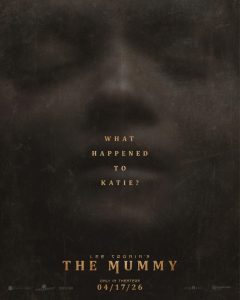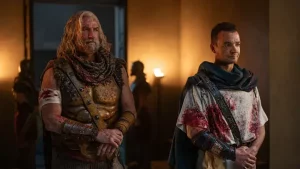
The movies are in trouble. Or so we’re told frequently and often in the trades, on social media, and simply among industry gossipers convinced the sky is falling. In terms of ticket sales for conventional blockbusters, this summer is indeed off to a sluggish start. But if you focus only on the nickels and dimes, you likely are missing why you fell in love with movies in the first place.
And there’s been quite a bit to love, or at least respectfully admire, in the first half of 2024. While a few genuinely great blockbusters on this list have struggled, others have thrived. Perhaps more impressive though is the handful of indie and prestige films which have found healthy Gen Z and millennial audiences and (would wonders never cease) benefited from costing less than a cool quarter-billion or thereabouts to produce. Likely in part due to so many delays caused by last year’s strikes, the spring moviegoing season has been unusually strong, and here are some of the most intriguing, enlightening, or just plain entertaining players in that run.
Universal Pictures
Abigail
Not all horror movies need to be “elevated” metaphors about trauma or the ways we process our grief. Sometimes cinema’s most mischievous genre can be purely about the surface level thrills of seeing a monster turn a protagonist into red mist. Well, directors Matt Bettinelli-Olpin and Tyler Gillett, who form two-thirds of the creative collective Radio Silence, do that and so much more in their latest slice of decadent carnage candy, Abigail. Originally begun as yet another attempt to exhume Dracula at Universal Pictures, Abigail turned out to be something a lot more original and fiendish in its tale about an array of small-time crooks locked in a mansion with a pint-sized ballerina vampire from hell.
A shameless smash-up of several Quentin Tarantino joints, including Reservoir Dogs’ general setup and From Dusk Till Dawn’s tonal shift, the movie is fixated on archetypes like world-weary single mom Joey (Melissa Barrera) and lifelong underworld scumbag Frank (Dan Stevens) as they realize the little girl they were paid to kidnap is actually an undead princess who likes to play with her food. All visceral laughs and spewing viscera, Abigail is unlikely to be a movie you remember in 2025. But that doesn’t mean you won’t have a fun night with it in ’24.
MGM
Challengers
Despite what a strangely puritanical group of TikTokers might say about sex scenes in movies, it turns out audiences still don’t mind their films getting frisky, provided it serves a point. Luckily, Luca Guadagnino’s Challengers is all about serving—as well as titillating, delighting, and ultimately horrifying. Incorrectly categorized in some circles as either a sports movie or a romantic melodrama, the best way to describe this Zendaya hit is as a dark comedy with a triangle of toxicity at its center.
All three parties played by Zendaya, Mike Faist, and Josh O’Connor are portraits in narcissism and desire. They confess to also caring about one another and tennis, but rarely in that order, much to some’s lament. By utilizing a swift non-chronological structure, the Call Me by Your Name director is at his frothiest and most crowdpleasing. He crafts a mystery that asks you to second-guess how this sordid trio got so screwed up and who betrayed whom when. Their arguments and grievances takes on the point, counterpoint pacing of a tennis match, and much like the sport in question, its lightning energy left audiences panting with an electric charge.
A24
Civil War
Many balked when Alex Garland’s next film for A24 was announced: a speculative political thriller about what the U.S. looks like after a second civil war. Some continue to dismiss Garland’s vision, too, because of its ultimately spartan and taciturn approach to politics. However, when the dust settles, there is little doubt Garland’s film will be one of the most lasting and debated cinematic experiences from the year—especially as we seemingly edge ever closer to its future.
Set years down the road and in the last days of a brutal internecine conflict, the film eschews focusing on why the war started in favor of imagining how it ends: bloody. An unnamed dictator who calls himself president (Nick Offerman) deludes his supporters with mendacious statements while his enemies close in around the capital. Neither side looks particularly heroic to our detached and demoralized point-of-view characters: a quartet of war junkie journalists. The performances are across the board sharp, but it’s Kirsten Dunst as a beleaguered lifer in the trenches who most sears as she contemplates publishing a photo of a dead colleague. The film doesn’t lay out exactly how things came to this, but the bitter power of the movie is it doesn’t need to. Viewers with any mild awareness of the world can fill in the gaps left by Garland’s breadcrumbs while he convincingly imagines an America that looks like so many other 21st century films about surviving in a failed state. Also the handful of battle sequences are deafeningly tense.
Warner Bros. Pictures
Dune: Part Two
While cinema is an art form, the movies’ original appeal always stemmed from spectacle. What better use can a moving image have than to show you sights and worlds hitherto unknown? Hence why so many of the legendary classics are able to marry both such muses. And after sticking the landing in his two-volume adaptation of Frank Herbert’s Dune, it seems likely Denis Villeneuve’s dream of Arrakis will join those lofty ranks.
While the story of Hebert’s original Dune has been adapted several times before, never has a blockbuster captured so much foreboding awe, and queasy grandeur, as when Timothée Chalamet stands before thousands of fanatics and holds his crysknife in the air to scream “long live the fighters!” This half of Villeneuve’s adaptation is especially hypnotic in its despair. It’s a monumental epic about how religions are forged and genocides codified, and it has the seductive sweep of Lawrence of Arabia and the genre-appeal of Star Wars. It’s a genuine space oddity that is destined to be watched for generations to come.
Universal Pictures
The Fall Guy
David Leitch’s The Fall Guy deserves a bigger audience than it’s so far found. A heart-on-its-sleeve throwback to the type of high-concept star vehicles and crowdpleasers that used to be a dime a dozen in the ‘80s and ‘90s, their relative rarity might be why Ryan Gosling and Emily Blunt seem to be feasting here. Making a meal out of a behind-the-scenes meta-comedy where a stuntman and director attempt their own cool-looking summer movie, both performers savor every one of The Fall Guy‘s winks to the audience and genre in-jokes. More satisfying still is their irresistible screwball chemistry.
Gosling and Blunt banter like Cary Grant and Rosalind Russell, and in a split-screen gag that wouldn’t look out of place n a Rock Hudson/Doris Day picture. The result is so charming it can even paper over any problems the movie might run into from convoluted plotting and an overthought murder mystery. Audiences who come for the winning humor and a collection of cool stunts (and it could have honestly featured more!) will be left grinning.
20th Century Studios
The First Omen
It’s still pretty wild that two separate but conceptually identical films about a nun being manipulated into giving birth to the Antichrist could come out within a couple of weeks of each other. More surprising still, we found ourselves much more captivated and haunted by the one that was surely greenlit as a bit of IP maintenance by a studio that dubiously wanted to make a prequel to a nearly 50-year-old hit.
In spite of those less than auspicious origins, first-time feature director Arkasha Stevenson justifies this trip to a well filled with unholy water. The First Omen is a depraved and, at times, seriously unsettling portrait of a woman (played by a riveting Nell Tiger Free) who’s manipulated into losing control of her body by the patriarchy she was raised to serve. A vitally urgent pro-choice allegory, even if the film is set in the ‘60s, The First Omen has fire in blood, be it from hell or otherwise.
Warner Bros. Pictures
Furiosa: A Mad Max Saga
Box office schmox office, George Miller makes movies that are meant for the ages, and Furiosa is no exception. Built to last, Furiosa is a dazzling work that avoids any attempt at replicating Miller’s masterpiece—2015’s Mad Max: Fury Road—while still offering up a unique animal of equal ambition. Where Fury Road was compressed, Furiosa is layered; and where one was virtually a silent film, the other takes on the density of a novel—but, you know, with biker warriors who can also paraglide while dropping grenades.
Miller has always positioned his Mad Max films as a kind of mythology for the future. These are campfire tales of a mythic hero righting wrongs in our cruel post-apocalyptic destiny. Now that pantheon has officially grown by one, with Imperator Furiosa’s life and labors taking on the agony and ecstasy of a Heracles or Odysseus. The role will always belong to Charlize Theron, but Anya Taylor-Joy makes an eerily convincing embodiment of the youth of the Wasteland’s darkest avenging angel. It’s a prequel where by the end you’re convinced these two drastically different performances have merged into one in the same. Although in this side of that divide, it’s in service to a sprawling biblical epic about vengeance and the cycles of history that will probably doom us all. Plus, it has a career-best turn by Chris Hemsworth with a funny nose.
Netflix
Hit Man
Longtime friends and fellow Texans Richard Linklater and Glen Powell wrote Hit Man for free in their downtime for the same reason this festival darling ended up on Netflix: studios told the pair it was too oddball and adult for theaters. Given the recent success of Challengers and Anyone But You, we suggest those studio hands reconsider what is the new mainstream. Definitely intended for adults, Hit Man is also a mirthful winner that can seduce almost any audience.
Essentially a mash-up of rom-coms with film noir, as well as a devilish parable about self-actualization, Hit Man takes the true story of Gary Johnson, a fella who made a living pretending to be a contract killer for law enforcement (thereby ensnaring would-be murderers), and turns it into the basis for the best cinematic meet-cute in years. On one side of a diner booth sits Powell’s Gary, a guy playing a guy, in this case the “cool dude” assassin; on the other is Adria Arjuna’s Maddie, a woman who desperately needs to get away from her abusive husband. Is it a hero and a damsel in distress or a femme fatale and her mark? Either way, the sparks won’t stop flying until the end credits.
A24
I Saw the TV Glow
Jane Schoenbrun’s follow-up to We’re All Going to the World’s Fair is an intimate blending of genre tropes and harrowing lived experiences. The result is a tragic parable for a trans childhood that is sure to not leave your mind for a longtime. Playing with a highly specialized form of ‘90s nostalgia—in this case for the darker side of youth-oriented TV programming like Are You Afraid of the Dark?, The Adventures of Pete & Pete, and Buffy the Vampire Slayer—I Saw the TV Glow imagines two ‘90s kids (Justice Smith and Brigette Lundy-Paine) whose only escape from miserable high school lives is a strange genre show on Saturday nights.
But as TV Glow shines its strange light, it presents a metaphor for the danger and refuge found in parasocial relationships with fictional characters, and an even more devastating one about hiding in those sanctuaries from the world and your true self. Schoenbrun has described the movie to be an ultimately hopeful expression of how they overcame a similar experience in suburban isolation, but even so this cautionary tale offers images more disturbing, and despairing, than any of the year’s straight-ahead horror movies.
Shudder
Late Night with the Devil
In a desperate attempt to boost the ratings of his struggling show, late-night TV host Jack Delroy (David Dastmalchian) organizes a live Halloween night spectacular complete with mystics, cynics, and a costume contest. However, the star of that very special episode is a young girl who claims to be possessed by a demon. What is initially perceived by some to be a cheap publicity stunt sweetened by pre-planned production cues spirals into what Delroy’s competitor Johnny Carson may describe as “weird, wild stuff.”
Late Night With the Devil sometimes struggles to get the most out of its incredible premise. While this movie’s reach starts to exceed its grasp by the time we get to its divisive finale, Cameron and Colin Cairnes’ directorial vision finds its greatest strength in the smaller moments. Anchored by an amazing performance from Dastmalchian, the film conveys the darkly amusing dread of the ’70s-era satanic panic culture with the style and sleaze of a paperback pulp horror novel. Its ability to also recreate the kitschiness, yet relative naïveté, of that era’s late night TV likewise gives the film an unnerving verisimilitude.
A24
Love Lies Bleeding
In Love Lies Bleeding, director Rose Glass follows a gym manager known as Lou (Kristen Stewart at the top of her game) as she falls madly in love with a bodybuilder named Jackie (Katy O’Brian in a revelatory performance). As the two begin to test their physical and emotional limits, they become embroidered in a small town conspiracy that forces them to desperately hunt for a way out.
The Love Lies Bleeding viewing experience often echoes the journey of the film’s protagonists. What begins as a kind of throwback neo noir thriller—one that’s as comforting and exciting as new love itself—spirals into a journey of madness, pain, and confusion. Yet if you too can roll with this film’s surreal and often horror-like punches (hey, it’s from the director of the equally unhinged Saint Maud), you will find something special at the end of where its twisting road leads.
Universal Pictures
Monkey Man
Dev Patel’s Monkey Man might be all about its style, but what ferocious style it has! A directorial debut that’s finished existence seems like an achievement unto itself—it was delayed constantly due to COVID, losses in financing, and its star/director/mad man breaking his foot and hand on separate occasions—Monkey Man comes together as a relentless action movie fueled by real frustrations with the political climate in India. That plus Patel’s demand to be taken seriously as an action genre breakout.
Avoiding the clean wide, compositions favored by most studio actioners post-John Wick, Monkey Man embraces a kinetic and a purposefully chaotic handheld quality. But rather than masking its star’s physicality, the approach instead evokes a camera and film breathlessly unable to keep up with a protagonist so filled with rage he’s almost skidding out the frame. An exercise in a long-maintained tension (it’s about 45 minutes before the first major set piece) and then extended release, Monkey Man is rough around the edges as a narrative, but as a spectacle it’s transfixing.
Magnolia PIctures
The Promised Land
Mads Mikkelsen reteams with his A Royal Affair director Nikolaj Arcel for a period piece thriller that is equal parts Western and scathing indictment of European classism. That is because this Western takes place on the wild moors of Denmark’s contested Jutland, and the contest is between Ludvig Kahlen, a penniless soldier-turned-farmer (Mikkelsen) with dreams of nobility, and the actual noble-born Frederik De Schinkel (Simon Bennebjerg), who has no interest in seeing the small farmer succeed. Alas, out on the Danish frontier of heather and banditry, the law is whatever an aristocrat says it is.
A decidedly chillier and more cynical period piece than most European films that look fawningly back on the ages of landed gentry, The Promised Land makes for a slow-boiling tension-gnasher. It has all the elegant fashions and shot compositions of a prestige costumed drama one might find on the BBC, but ice runs through its veins, even as it constantly raises the heat on Ludvig’s insurmountable disadvantage. And that’s before the bodies start piling up.
The film also benefits greatly from the presence Mikkelsen, one of the best actors of his generation who must constantly return to his homeland to shake off Hollywood’s insistence on casting him as villains. He in fact makes for an incredibly compelling, and tragic, hero who eventually reaches the point where he needs to pick up the sword. Amanda Collin also does quietly steely work as Ann Barbara, the woman who just might be able to end the central rivalry.
The post The Best Movies of 2024 (So Far) appeared first on Den of Geek.












